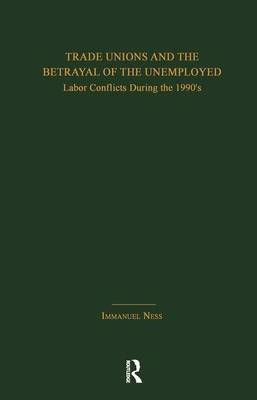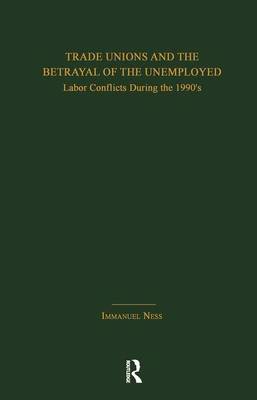
- Afhalen na 1 uur in een winkel met voorraad
- Gratis thuislevering in België vanaf € 30
- Ruim aanbod met 7 miljoen producten
- Afhalen na 1 uur in een winkel met voorraad
- Gratis thuislevering in België vanaf € 30
- Ruim aanbod met 7 miljoen producten
Zoeken
€ 117,95
+ 235 punten
Uitvoering
Omschrijving
This book examines the problematic relationship between unions and the unemployed in New York City during the 1990's. Historically, trade unions in the U.S. have had an interest in the political mobilization of the jobless to expand unemployment insurance and lessen the threat of lower wages, reduced union density, and weaker bargaining positions for unions. Despite these advantages, trade unions have rarely organized the unemployed, because they represent a potential threat to the organizational control, leadership, and legitimacy of the trade unions themselves. Moreover, the interests of the unemployed conflict directly with those of the securely employed trade unionist. The study identifies union responses to unemployment at local and regional levels and the responses of independent activist organizations. The research suggests that hiring hall unions produce exclusive organizing strategies that have deeper accountability to their members, but with organizing objectives that serve only the narrow interests of core members. By contrast, workplace-based unions typically engender class-oriented unions with narrow accountability to members, but with organizing objectives that extend beyond their immediate members.
Specificaties
Betrokkenen
- Auteur(s):
- Uitgeverij:
Inhoud
- Aantal bladzijden:
- 268
- Taal:
- Engels
- Reeks:
Eigenschappen
- Productcode (EAN):
- 9780815331797
- Verschijningsdatum:
- 1/06/1998
- Uitvoering:
- Hardcover
- Formaat:
- Genaaid
- Afmetingen:
- 148 mm x 226 mm
- Gewicht:
- 453 g

Alleen bij Standaard Boekhandel
+ 235 punten op je klantenkaart van Standaard Boekhandel
Beoordelingen
We publiceren alleen reviews die voldoen aan de voorwaarden voor reviews. Bekijk onze voorwaarden voor reviews.











